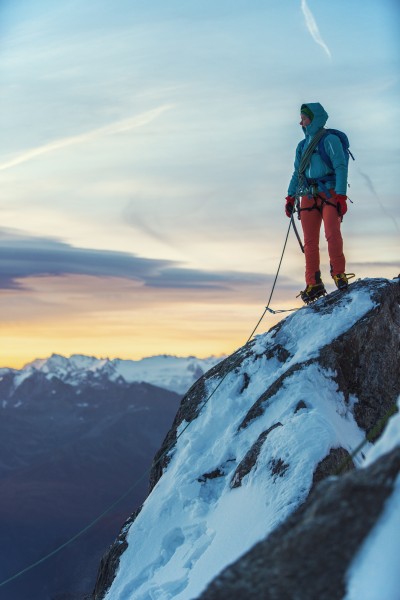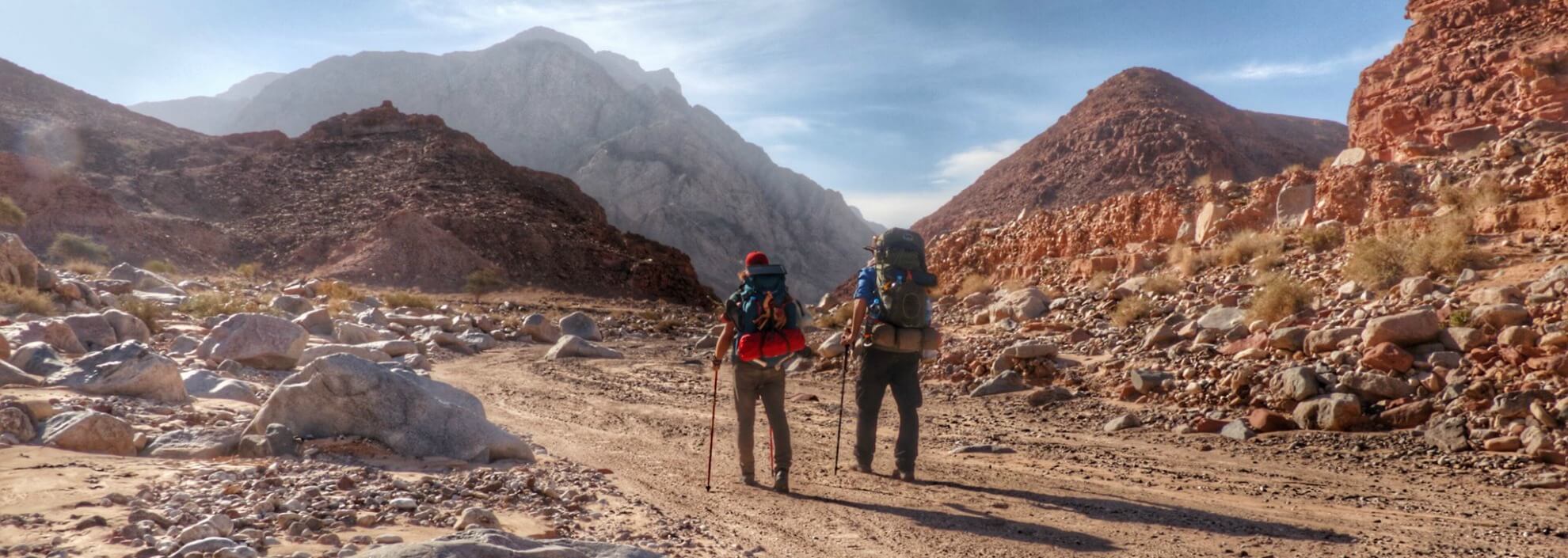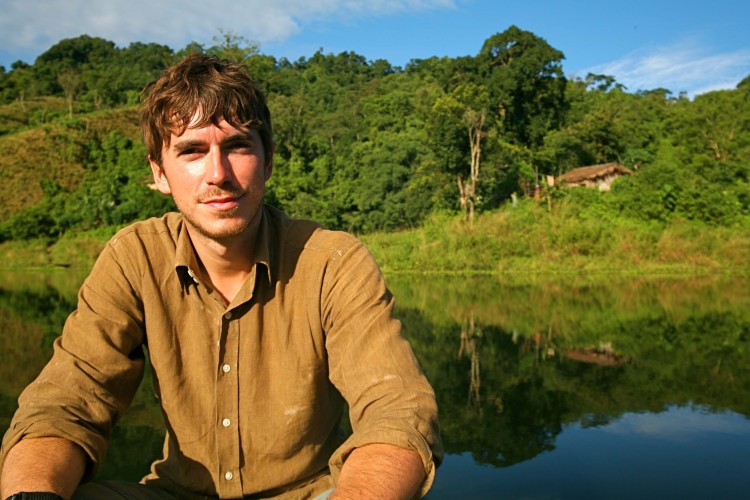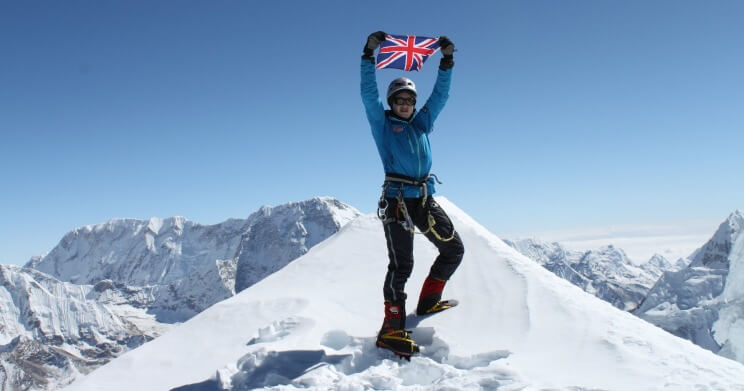
Here at Winfields Outdoors, we like to occasionally shine a spotlight on some of the most inspirational people in the outdoor world. Our latest interviewee, Bonita Norris, very much falls into that category.
Bonita was the youngest person to climb Everest at the age of just 22, and was also the youngest to reach the North Pole the following year. We were lucky enough to catch up with her about her amazing adventures.
Was it always your aim to be the youngest person to climb Everest?
No! I hadn’t climbed a mountain until I was 20 years old. I went to a lecture whilst at university given by Rob Casserley and Kenton Cool at the RGS. It inspired me so much that I decided on the spot that one day I would climb Mt Everest. It took two years to realise that dream. I didn’t know there was a record up for grabs until months down the line - it was definitely a motivator, but wasn’t the reason for starting.
What did it mean to you reach the summit and earn that achievement?
For me, it was re-affirmation that I should always trust my intuition. I felt a deep gratitude towards myself and the universe that I had taken that leap of faith and it had worked out. I don’t think we talk enough about trust these days - trust in ourselves, trust in nature, trust in others and in the potential around us. We like concrete evidence of our progress and when things don’t logically add up we can’t see past that logic and give in.
So much of climbing a mountain is about passion over logic - it’s forging ahead even when you understand that failure is almost certain. It’s trusting that whatever happens will be a precious life learning experience - even failure or fatality. Ultimately, we trust far too much in our comfort zones that teach us very little, and trust very little outside of that zone which really has the potential to teach us everything.
Were there any moments when you felt you'd bitten off more than you could chew? Just how dangerous is Everest?
When I started out I had no climbing skills, knew nobody in the climbing world and didn’t have two pennies to rub together - it felt very much like I’d bitten off more than I could chew! On the mountain it didn’t feel that way. I was a member of a great team, we had trained hard, climbing an 8000m peak in the Himalayas in the lead up, and I cherished every day on the mountain. There were very few moments where I felt afraid, and when I was in a dangerous situation I didn’t feel any fear until after it was over. That’s adrenaline doing its job! I think less than 1 in 100 people die on Everest nowadays, but less than twenty years ago this figure was more like 1 in 10.
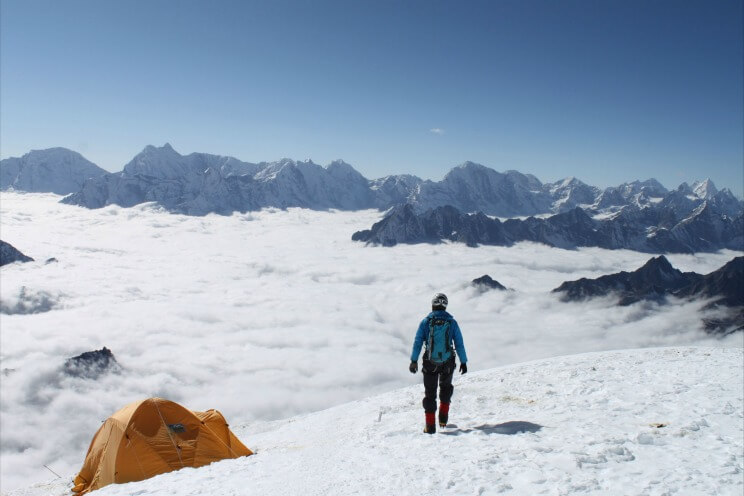
Is it just as much a mental slog as a physical one?
Climbing 8000m peaks requires a certain kind of fitness. The ability to firstly acclimatise (for instance the super fit Olympian Victoria Pendleton has just left Everest because she couldn’t acclimatise), secondly the ability to recover fast - imagine climbing for nearly 24 hours straight and then with little sleep facing down another 10 hours day, then another 8 hour day. Thirdly, you need upper body strength - you’re constantly using your arms to pull up on ropes and rock.
You have to be pretty fast too - it’s a ‘rich get richer, poor get poorer’ situation - the more efficient you climb, the less you are exposed to the baking sun or the wind and snow, you get more rest and recovery time and more time to fix your kit for the next day. If you’re slow, you’re exposed for more time to the elements, get less rest and generally don’t have as much time to organise yourself. You’re always on the back foot.
There are also a million little tricks and skills you need that you only really learn ‘on the job’ - everything from how to pace yourself to how to stop your oxygen mask freezing up and what kind of ice is best for boiling into hot water to drink. THEN there’s the mental side, which is definitely 90% of what gets you to the summit on summit night. It’s pitch black, the light off your head torch plunges you into your own bubble, you fight your demons non stop for 12 hours. That’s where the trust comes in.
You were also the youngest person to reach the North Pole - how different was that to Everest?
I was the youngest person to reach the summit of Everest and the North Pole by the age of 23… it was hugely different to Everest, incomparable almost. Firstly you ski over sea ice, which doesn’t change much for hundreds of kilometres. That makes it a mental battle. It can be quite boring! The skiing was pretty easy, even dragging a pulk. We got great weather though. I couldn’t imagine skiing with a pulk in an arctic storm. It was beautiful in a very unique way, but I love climbing because of how the view changes and the mountain reveals itself. Also, when you’re on a mountain, the mountain has a kind of personality, you get to know it. I didn’t feel the same affinity with the sea ice.
How important is having the right kit and clothing to mountaineering?
Absolutely fundamental. Just go home if you don’t have the right kit, unless you like to suffer - which there are many who do! The best money I’ve ever spent was on the best kit I could afford - right down to my socks, especially socks in fact! It can in extreme be the difference between life and death but mostly the difference between a smile on your face and niggling misery.
What advice would you give someone who wanted to make a step up and tackle the big mountains?
Start at your local climbing wall, make friends, start climbing with them on weekend trips, book onto a course in the Alps with a reputable guide, always have the mindset of a learner, don’t let your ego get in the way. Push yourself though - you will be surprised at what you’re capable of. There are plenty of companies these days offering trips to 8000m peaks, but I would start by emailing lots of mountaineers that you’ve researched who’ve been on these expeditions and ask if there’s a team in particular they’d recommend.
At first I climbed with a guide but by my 3rd expedition I stopped using them and climbing in teams where the structure was flat and we were all responsible for decision making. I wouldn’t recommend that on your first 8000m peak though - learning from a guide is so invaluable and I am forever grateful for the great mentors I’ve had over the years.
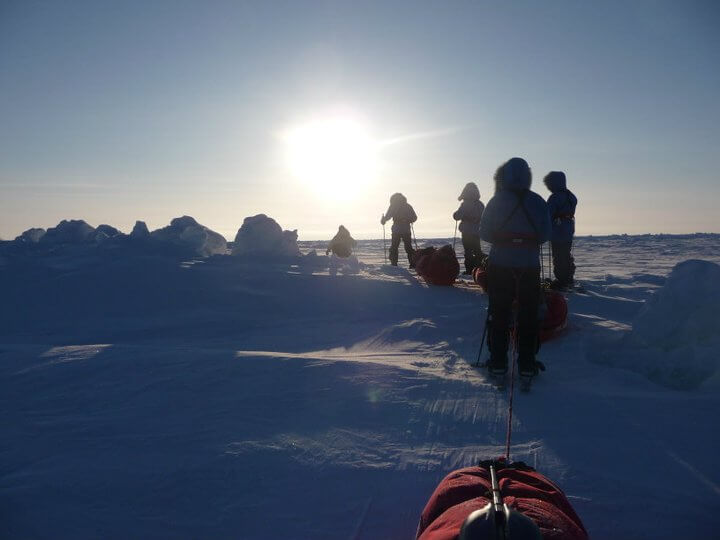
We recently launched a campaign called Walk & Talk to promote the benefits getting outdoors can have on mental health - how important do you think it is for people to get outdoors more?
I think the fact that we even have to ask that question or have a campaign shows how lost as a species we’ve become. I worked on a campaign a few years back with Ordnance Survey called GetOutSide and it really hit me then how many people and kids especially spend very little time outside. We even have ‘forest bathing’ now in Japan for stressed out city workers. WHAT IS GOING ON?! If we took a moment to think about our evolution - 3 million years of living in the wild, of spending every moment from the second we were born to the second we died under the sun and the stars, no shoes, no furniture, no walls or doors to separate ourselves from the outside world. We are moulded by nature throughout our lives; our brains and bodies do not function properly without it.
Then in the blink of an evolutionary eye, we concrete over the natural world, physically separate ourselves from it and then wonder later what the effects on us might be? Being outdoors is like breathing - it is absolutely essential for us to function. We are not human beings if we are not spending time in nature. The sad thing is most people don’t know how it feels to be energised and sculpted in body and mind by the outdoors; they just don’t know what they are missing.
What they do know is that their mental and physical health symptoms are screaming to them that something’s up, but ‘nature’ isn’t prescribed by the doctor, so thank god for your campaign and I hope over time we will all collectively understand that we are wild animals who are meant to be outside 24/7… I hope one day that being separated from nature for too long will be seen as a health hazard because that’s absolutely what it is.
Find out more about the Winfields Walk & Talk campaign
What's your next big challenge?
I just qualified as a yoga teacher and am looking forward to teaching and running retreats. I also work as a motivational speaker. I love climbing but I don’t think a big expedition is on the horizon. I’m now more interested in rock climbing in hot countries, having become soft in my old age 🙂 I’m hoping to have children in the next year or so, but after that we’ll see. For the meantime I’m about to publish the paper back version of my book, The Girl Who Climbed Everest on July 26th.
Many thanks to Bonita for taking the time to speak to us. If you're feeling inspired, take a look at our selection of men's hiking boots and women's hiking boots.





